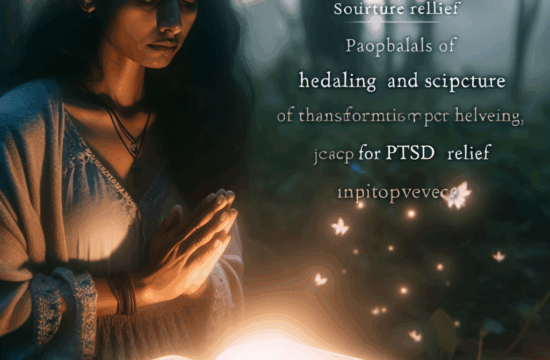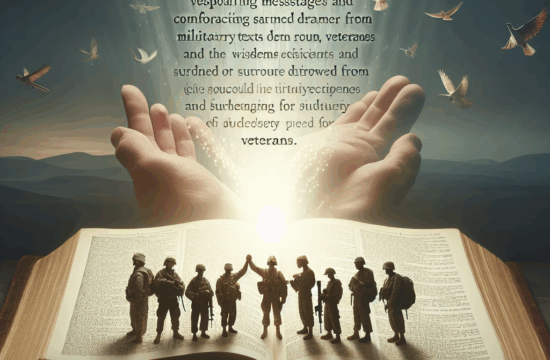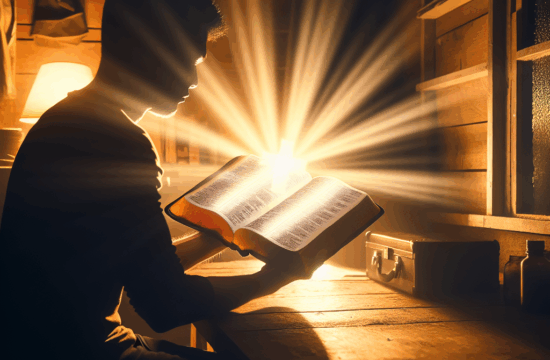==> Thank you for reading this post! Click Here If you are looking for support and Victory over PTSD.
Understanding the Warrior’s Heart
The Nature of a Warrior
As someone who’s been battling the ups and downs of life, I resonate deeply with the idea of a warrior’s heart. It’s not just about physical battles; it’s an emotional and spiritual war too. The heart of a warrior is often brave and fierce but can also be battered and bruised from life’s trials.
I remember feeling invincible at times, but there were moments when despair would creep in, leaving me questioning my worth and purpose. Warriors are often seen as strong and resilient, but it’s important to recognize that they too can experience vulnerability and pain.
Understanding this aspect of the warrior’s heart allows us to acknowledge our struggles and seek healing. We’re not just fighting external foes; our biggest battles lie within. By embracing this truth, we open ourselves up to the possibility of healing through our faith.
Recognizing the Wounds
The first step in healing is often recognizing that we are wounded. For me, this didn’t come overnight. I had to face the uncomfortable truths about my past, the things I had hidden away for too long. Acknowledging my wounds was like lifting a heavy weight off my chest, allowing me to breathe easier.
Wounds often manifest in various ways—anger, sadness, or even anxiety. When everything seemed to spiral out of control, I found that examining my heart was crucial. What was I trying to bury inside? It was then I realized that understanding our emotions is vital to healing.
Jesus teaches us to bring our wounds to Him. It can be tough to open up, but taking that first step towards honesty can lead to freedom. I learned that letting go is part of healing, and this recognition was the beginning of my journey.
Turning to Scripture
One of the most powerful tools in my healing journey has been the Bible. Turning to scripture is like holding a compass when you’re lost in the woods. When I felt defeated, verses like Psalm 147:3, which says He heals the brokenhearted, became my anchor.
I made it a habit to read and meditate on scripture that spoke to my heart. It felt as if every word was designed to soothe my spirit. In my darkest moments, I found promises of hope and healing that reassured me I wasn’t alone.
Connecting with God through scripture also helped me to reframe my circumstances. Instead of viewing myself as a victim, I began to see my struggles as a part of my growth, a refining fire where my faith could shine brighter. It was transformative!
Engaging in Community
The Power of Fellowship
In my journey of healing, I’ve discovered that community plays a crucial role. There’s something incredibly powerful about sharing your story with others who are on a similar path. When I was vulnerable and open about my hurts, I found strength in the support of my friends and fellow warriors.
Fellowship helps to remind us that we are not alone in our struggles. Gathering with others who understand your fight can create an environment of encouragement and hope. I’ve seen how sharing my journey with trusted friends has opened the door for deeper connections and mutual healing.
Being part of a community instills accountability too. Knowing that there are people who care about your well-being encourages me to keep moving forward, even when I feel like giving up. It’s a reminder that healing is not meant to be a solitary endeavor.
The Role of Mentorship
In seeking community, I learned the importance of mentorship. Finding a mentor who has walked a similar path can provide invaluable wisdom and insight. My own mentor helped me see things from a different perspective and offered practical steps forward.
Having someone guide you through your healing process can alleviate the pressure you might feel to have it all figured out. Their experiences can serve as a roadmap, showcasing how they overcame their trials. Their stories inspire hope and light even the darkest corners of our warrior hearts.
I’ve found mentorship to be instrumental in developing resilience. As I walked alongside my mentor, I also had the opportunity to mentor others, perpetuating a cycle of healing and support. It’s amazing how empowering it is to lift someone while also receiving strength in return!
Serving Others
Another significant aspect of healing for me has been serving others. It may sound counterintuitive, but pouring into others tends to be a soothing balm for our own wounds. I’ve experienced healing through acts of service—helping at local shelters, volunteering for community events, and even just lending a listening ear to friends in need.
Get Support and Help with Recovery! Visit us for more Information and Support
When I focus on helping others, it helps shift my perspective. Instead of dwelling on my pain, I can channel my energy into making a difference in someone else’s life. It’s a win-win situation that fosters genuine connection and compassion.
Serving allows us to express the love of Christ in tangible ways. I’ve seen lives transformed, including my own, as I stepped outside of my own struggles to help others heal. This connection is what life is all about, and it’s an incredible way to align ourselves with God’s purpose.
Embracing Forgiveness
Forgiving Yourself
A significant turn in my healing journey came when I learned to forgive myself. It’s so easy to dwell on past mistakes and shortcomings, and I struggled with this for a long time. I wondered, how could I move forward when I felt so weighted down by guilt?
Forgiveness is essential in healing, especially self-forgiveness. I had to learn that my worth isn’t defined by my mistakes but by God’s love. It was a huge relief to let go of the guilt I had been holding onto. This journey taught me to view my past with grace and recognize that it shaped who I am today.
Forgiving ourselves opens the door to new possibilities. I found that once I let go of my self-judgment, I could embrace my authentic self and pursue the dreams God placed in my heart. It’s liberating, to say the least!
Forgiving Others
Just as I needed to embrace self-forgiveness, I also found the importance of forgiving others. Holding onto grudges was like carrying a heavy backpack—it was exhausting! I believed that forgiving others meant saying what they did was okay. That could not be further from the truth.
Forgiveness is about freeing ourselves from the chains of resentment. I realized that holding onto anger only hurt me more. By forgiving others, I allowed myself to release those negative feelings and find peace. It was a rewarding step in my healing journey.
Through this process, I learned to seek understanding rather than vengeance. When I could see the humanity in others’ actions, it became easier to forgive. It’s not always easy, but it’s a critical step towards a healed heart.
Restoring Relationships
Finally, I discovered that healing often involves restoring relationships that might have been damaged. This was especially hard for me since I didn’t always know how to approach those I’d hurt or who had hurt me. But, I came to see that restoration brings new life to our hearts.
Restoring relationships requires humility and courage. There were times when I had to swallow my pride and take the first step in reaching out. It wasn’t easy, but every time I chose reconciliation, I felt a weight lifted off my shoulders.
The beauty of restoration is its potential to build stronger bonds. I learned that forgiveness and healing do not mean forgetting; it means moving forward with greater appreciation for the relationships that truly matter. God desires wholeness in our lives, and that includes our relationships.
FAQ
1. What does it mean to have a warrior’s heart?
A warrior’s heart is characterized by resilience, strength, and bravery. However, it is also vital to recognize that a warrior can feel vulnerable and wounded, acknowledging that internal battles are just as significant as external ones.
2. How can scripture aid in the healing process?
Scripture offers comfort, guidance, and encouragement. It serves as a reminder of God’s promises and can help reframe your circumstances, reminding you that healing and hope are always possible through faith.
3. Why is community important in healing?
Community provides support, accountability, and connection. Sharing your journey with others can create a nurturing environment where healing can flourish, reminding you that you’re not alone in your struggles.
4. What role does forgiveness play in healing?
Forgiveness, both of oneself and others, is essential for healing. It releases the grip of pain and resentment, allowing for emotional freedom and the opportunity to rebuild relationships with a heart open to love.
5. How can I start my own healing journey?
Begin by acknowledging your wounds, turning to scripture for guidance, and seeking community support. Embrace forgiveness and consider serving others, as these steps collectively lead to a greater sense of healing and wholeness.













